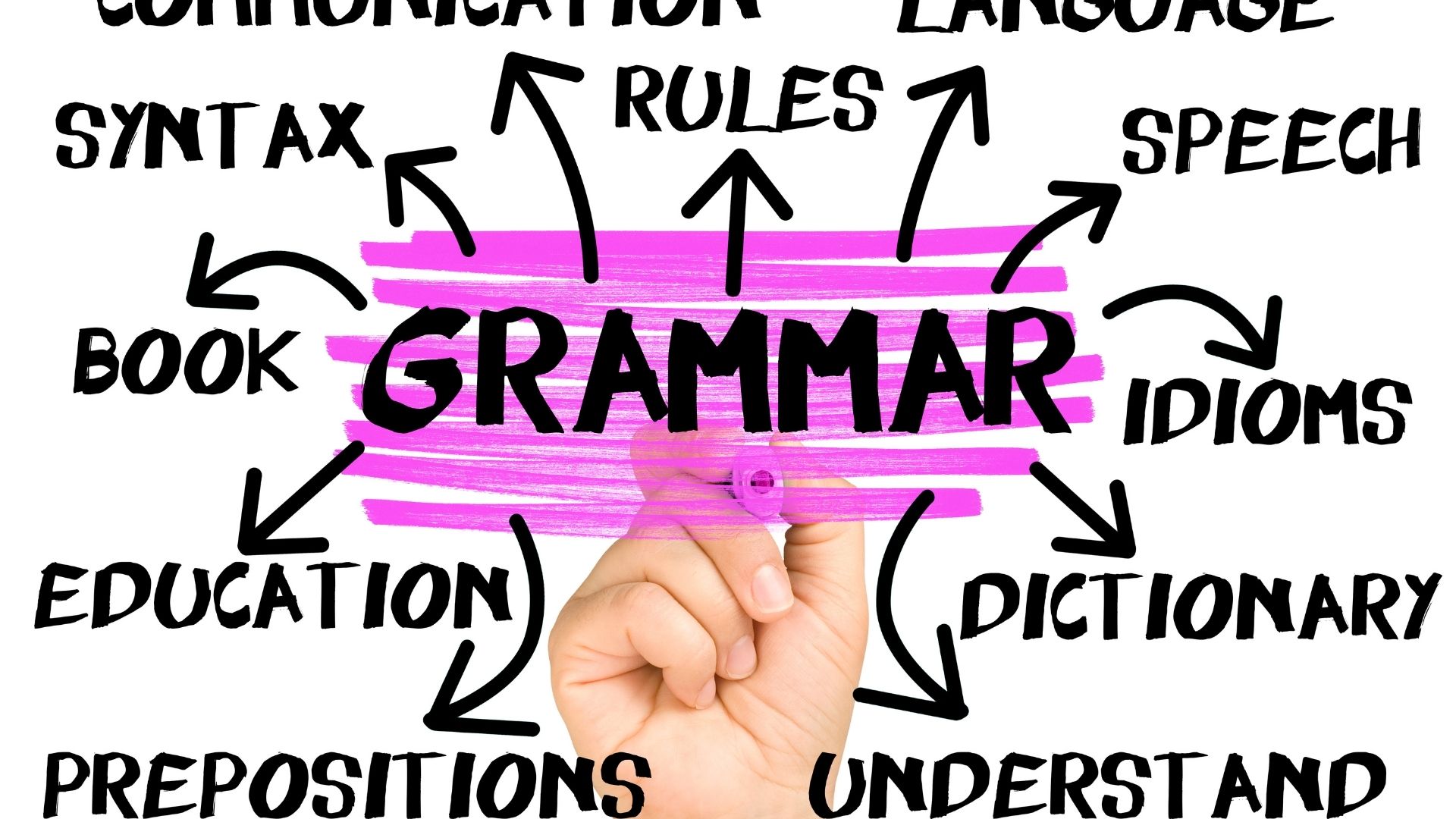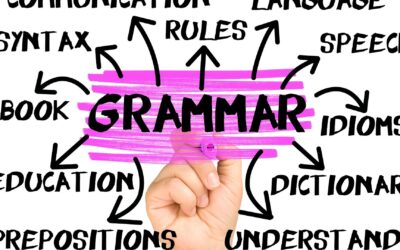Transcript
Disclaimer
I am using an automatic transcript service as it is not possible for me to do it on my own and I cannot afford human transcription at the moment. The service claims to have about 95% accuracy, which means there will still be some mistakes, so my apologies for having a less than perfect transcript, but I hope I can afford human transcription soon and I will solve this problem. However, the service is pretty good, and the transcript is almost perfect.
Transcript
Welcome to a new episode from English plus podcasts. Today’s episode is about grammar and we will talk about prepositions. Of course, we’re not going to talk about all prepositions. We’re going to focus on three, add on and in, and specifically when we use those with time expressions. Now you have to know that prepositions are difficult in English because they are kind of different from other languages.
[00:00:32] So when you try to compare between the prepositions you have in your own language and the English language, you might make some mistakes. And that’s what we’re here to do. We’re here to talk about the differences between these three. And also we will talk about expressions, like on-time in time in the end and at the end, the differences between these expressions.
[00:00:53] So without further ado, Let’s start talking about the prepositions at, on, in with time. Now, let’s start with these three examples. Compare the use of at, on an, in, in these three examples, they arrived at five o’clock or they arrived on Friday, or they arrived in June or they arrived in 2012. So what is the difference between at five o’clock.
[00:01:22] On Friday or in June. Now the basic thing is that we use ad for the time of day. So we say at five o’clock at 1145 at midnight now, because midnight is 12 o’clock. Okay. So that’s why it’s a time of day at midnight at lunchtime at sunset, etc. These are all times of day. So we usually use at, with those. We use on for days and dates.
[00:01:50] We say, for example, on Friday or on Fridays, if you don’t want to talk about a specific Friday on Fridays, or we can say on the 16th of May, 2012 or on new year’s day or on my birthday now, all of these are days or dates. So we use on with them. Now we use in for longer periods, months, years, seasons, et cetera.
[00:02:16] For example, we say in June, in 2012, in the 1990s or in the 20th century, in the past, for example, or in winter. So that is in a nutshell how we use app on, in with time. But of course that’s not everything we’re going to talk about some more expressions. And let’s start with at now we have expressions like at the moment, at the minute at present or at the Stein, which means now, for example, we can say, can we talk later?
[00:02:48] I’m busy at the moment at the moment. Or we can say at the same time, for example, Kate and I arrived at the same time or at the weekends or at weekends without them. But by the way here, we can say on the weekend or on weekends, especially in American English. Now, for example, we say, will you be here at the weekend?
[00:03:10] Or obviously, as I said on the weekend, especially in American English, but that’s not all we say, for example, at Christmas, But if you want to say Christmas day, you have to say on because that is a specific date or date. So we say at Christmas, but we say on Christmas day, for example, do you give each other presents at Christmas?
[00:03:34] Now we say at night, when we want to talk about during nights in general, and we say in the night, if we want to talk about during a particular night, I’ll give you two examples. We say I don’t like working at night and that means during nights in general, but I was woken up by a noise in the night, in the night here.
[00:03:55] We’re talking about a particular night. I was woken up by a noise in the night. Now we say, for example, in the morning or in the mornings, in the afternoon, in the evening, remember we say at night, not in. For night we use at not in, but for morning, afternoon, evening, we use in, we say in the morning or mornings in the afternoon or in the afternoons in the evening or evenings, but pay attention.
[00:04:21] We say on Friday, if we want to use the day you use on you say on Friday morning or mornings or on Sunday afternoon or afternoons on Monday evening or evenings. Now, for example, we say, I’ll see you in the morning. If you say in the morning without the day find use in, but you say, I’ll see you on Friday morning.
[00:04:45] That is a specific day we use on with it. Do you work in the evenings, but do you work on Saturday evenings? So in the evenings that’s general on Saturday evenings, we use on here. Now what if we want to use the words last next, this and every with Friday, June, et cetera, do we still use, add on an N? No, we do not pay attention.
[00:05:10] If you want to say out, see you on Friday, that’s fine. But if you say next Friday, you don’t use in or on, obviously here, you should have used on because it’s a day, but we don’t use any of those prepositions. We don’t use add on in before expressions, like last, next, this or every. So we say, I’ll see you next Friday.
[00:05:32] Not on next Friday. They got married last June, not in last June. And we often leave out on before days. Yes. We said before that we use on with days. For example, when we say, I’ll see you on Friday, but usually people say it, I’ll see you Friday and that’s fine. Or I don’t work on Monday mornings. You can say, I don’t work Monday mornings without on that is not a rule.
[00:05:56] You can still say I don’t work on Monday mornings, but usually people leave this out. They usually say I don’t work Monday mornings. Now we have more expressions to use within that relates to time. We say that something will happen in a few minutes or in six months. What does that mean? The train will be leaving in a few minutes.
[00:06:17] That means a few minutes from now, but we don’t usually say a few minutes from now. It is correct, of course, but we don’t usually say it. We say in a few minutes, Andy has gone away. He’ll be back in a week, a week from now. They’ll be here in a moment, a moment from now, or obviously very soon. We also use in to say how long it takes to do something.
[00:06:40] For example, I learned to drive in four weeks. That means it took me four weeks to learn. All right. So we can talk about a moment from now a week from now. And instead of saying that we can say in a moment in a week, or you can say how long it takes to do something in four weeks, it took me four weeks to learn to drive.
[00:07:01] Now with that being said, let’s move on to talk about other expressions on time, in time at the end and Indian, because these are special. And the difference in meaning is very specific. But before we continue, let me remind you that you can find extra exercises in the show notes on our website, English plus podcast.com.
[00:07:19] You can find the link in the description of this episode. There is a custom post created for this episode and you will find everything you need in there. And there’s also another link in the description, and that will take you to our Patreon page, go to Patreon, become a patron of English, plus not only to support us, which we will appreciate a lot of course, but also to have access to all our premium episodes and podcasts.
[00:07:44] Now, with that being said, let’s move back and talk about on time and in time now, what is the difference? Isn’t it the same? Well, it’s actually not. If something happens on time, it happens at the time that was planned. On-time means punctual, not late, but in time is something else in time means soon enough.
[00:08:06] So let’s take a look at some examples. So understand the difference. The 1145 train left on time. What does that mean? That means it left at 1145. It was punctual. It was not late. It left at 1145 and it is the 1145 train. So it left on time. Or you can ask somebody, please be on time. Don’t be late. Be punctual.
[00:08:31] Or the conference was well organized. Everything began and finished on time. It happened at the time it was planned. Not late, but in time is a different story in time for something or to do something that means soon enough. Now here, for example, will you be home in time for dinner? That means soon enough for dinner.
[00:08:54] We can say here on dime, it’s not about being punctual. Will you be home soon enough for dinner in time for dinner? Or I sent Amy a birthday present. I hope it arrives in time on or before her birthday. That’s the meaning of in time? Not on time. What does it mean on time? There is no specific time the presence should arrive except for the day, of course, but.
[00:09:17] Here. It should arrive in time. That means on the birthday or before the birthday, or you can say, for example, I’m in a hurry. I want to get home in time to watch the game on TV. Well, soon enough to see the game. That doesn’t mean that I should arrive on time at the exact time. The game starts. No. If I arrive anytime before the game, that will be fine.
[00:09:39] Soon enough to see the game. Now the opposite of in time is too late. I got home too late to watch the game on TV. So you see here, the opposite of on-time is late, but the opposite of in dime is too late. You can also say just in time, that means almost too late, but not too late. For example, we got to the station just in time for our train almost too late, a minute more.
[00:10:06] And we would have missed the train, or we can say a child ran into the road in front of the car, but I managed to stop just in time, almost too late. Just one more second. And I would have hit the child. So here just in time, almost too late. So that was about on time and in time. What about at the end? And in the end, I’m pretty sure that a lot of people make mistakes and kind of confused at the end with Indian, but they are totally different.
[00:10:35] Now let’s start with at the end, at the end of something. That means at the time when something ends, like when we say at the end of the month, at the end of the film at the end of January, at the end of the course, at the end of the game, at the end of the concert, for example, I’m going away at the end of January or at the end of the month or at the end of the concert, everyone applauded, or the players shook hands at the end of the game.
[00:11:02] We do not say in the end of, for example, we do not say in the end of January, No the opposite of at the end is at the beginning. Obviously I’m going away at the beginning of January and again, not in the beginning. So at the beginning or at the end, if it’s obviously at the end, that’s at the time when something ends at the beginning, that’s at the time when something begins.
[00:11:25] What about the meaning of Indian? Isn’t it the same, or even close, not even close in the end means finally we use in the end, when we say what the final result of a situation was, for example, we had a lot of problems with our car. We sold it in the end. We finally sold it. Here in the end. Doesn’t have to do at the end of what.
[00:11:48] Now here we sold the car in the end. What does that mean at the end? If I say here at the end, the person who’s listening to you is going to wonder at the end of what at the end of the day, at the end of the month, at the end of what, but here in the end, that means finally we sold it. Another example, he got more and more angry in the end.
[00:12:07] He just walked out of the room. Finally, he just walked out of the room. Of course you can say finally, if you want, but in the end here has exactly the same meaning or because say for example, Alan, couldn’t decide where to go for his holidays. He didn’t go anywhere in the end, not at the end Indian.
[00:12:26] Eventually he didn’t go anywhere. Finally, he didn’t go anywhere. That’s the meaning of in the end. Now the opposite of in the end is at first, not in the beginning. The opposite of in the end is at first, for example, we say at first we didn’t get on very well, but in the end we became good friends. So that’s everything I wanted to share with you about the prepositions at, on, in with time.
[00:12:53] And I hope you found that useful. I hope you learned something from the examples I gave you. And let me remind you again, that you will find a lot more on our website, English plus podcast.com. So take the link. You can find in the description of this episode and take your English with it to the next level.
[00:13:06] And don’t forget to consider becoming a patron of English. Plus you will not. We have our eternal gratitude, but you will also have access to all our premium episodes and podcasts. So with that being said, this is your host. And I would like to thank you very much for listening to another episode from English plus podcast.
[00:13:23] I will see you next time.











Nice podcast.
I want to know one thing that
The log is rolling in or on the water. On or in which one is correct.
Thank you very much:) and as for your question, it depends… If the log is partly submerged in the water, we use in, but if it is floating on the surface, we use on. So both are possible but with slightly different meanings. I hope that answers your question. However, please let me know if you have any other questions — Danny